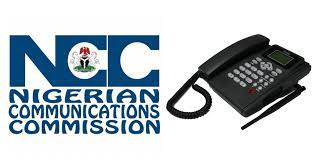In Nigeria, fixed telephone lines now have a new numbering scheme with a “02” prefix. This new numbering scheme was adopted by the Nigerian Communications Commission (NCC). These fixed lines, which are utilised almost exclusively by businesses, will now have the prefix “02” added to the beginning of their primary numbers, as stated by the regulatory authority that oversees telecoms.
The Nigerian Communications Commission (NCC) explained in a statement that was made public on Wednesday that this modification is in line with the responsibilities that were set for it in the Nigerian Communications Act (NCA) of 2003, which controls the administration of numbering resources in Nigeria.
Because of this modification, Nigeria’s Fixed-Lines Numbering Format has expanded from eight digits to ten digits; the only change that was required was the addition of the “02” prefix before the already established fixed numbers. The Commission has provided additional clarification that the currently used numbers would continue to function until the end of the year 2023.
Only the newly developed numbering format, which begins with the “02” prefix, will be in operation and adopted across all networks beginning on January 1, 2024, and it will be the only format of its kind.
Read also: NCC – Nigeria is 11th in global Internet penetration, 7th in Mobile Phone Usage
The updated numbering system by NCC
The following are some examples that were presented in a statement that was made by Reuben Muoka, who is the Director of Public Affairs at the NCC:
You will need to dial 02094617000 in order to reach a number that was previously in use, such as 09461700. This is because the new arrangement requires that you dial it. In a similar manner, the new numbering format in Lagos, Abuja, Port Harcourt, and Kano will be 02014630643, 094630643, 084460643, and 064460643, respectively. The present number forms in these cities are 014630643, 094630643, and 064460643, respectively.
In addition, this modification will only have an effect on fixed telephone numbers. That is to say,
there will be no changes made to the format of mobile numbers now in use.
“However, it is important to note that the change only affects the Fixed Telephone Numbers. There is NO CHANGE to the existing mobile numbering format.” Reuben remarked.
The Commission stated, in reference to this modification, that the announcement was made in order to fulfil a significant obligation of the NCC and align with the conventions that are adhered to by the International Telecommunication Union (ITU), which is a branch of the United Nations that oversees Information and Communication Technologies (ICT).
NCC invites applicants for 2023 Talent Hunt Research Hackathon
Importance of NCC’s fixed lines in Nigeria
For a number of different reasons, businesses in Nigeria place a large amount of importance on fixed lines. To begin, they make available a dependable and consistent communication infrastructure, which is an essential component for day-to-day operations. Fixed lines, as opposed to mobile networks, which can experience signal variations, offer consistent call quality and connectivity. This ensures that essential business talks can take place in a clear and uninterrupted manner.
Second, fixed lines frequently come with a variety of features and services that are specifically designed to cater to the requirements of businesses. Call forwarding, voicemail, conference calling, and direct inward dialling (DID) numbers are all examples of services that fall under this category. These capabilities enable firms to more efficiently manage their communications, which in turn increases both their production and their efficiency.




